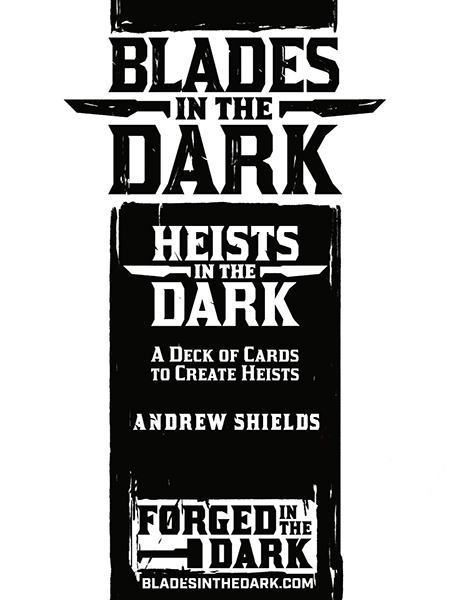Here are some key principles that inform my design for running game sessions, so you can understand how I’m focusing my prep and execution of games.
- I develop and focus on elements that players express interest in exploring.
- I don’t plan a series of events for players to go through. I plan a series of crisis points based on characters encountering NPC plans–friends, foes, and neutral parties. Based on how those resolve, NPCs react. I expect to control NPCs and reactions, not players and characters. I expect players and characters to surprise me.
- I believe a good rpg provides a series of interesting choices to each player, as often as possible in the session.
- My aim is to provide a variable mix of old and new in every session; I pull from past sessions and plots, and also inject new stuff, so there’s an ongoing blend.
This playstyle takes getting used to. Players will often pull out many toys but not put any away, then get overwhelmed with the number of subplots. Also, players will often take actions that do not support their goals, then be frustrated at the outcomes. (Classic example: if you want to game to blow off stress, don’t make a character who is a faction leader, responsible for others, expected to make difficult decisions.) Also, players are not united in what they want from a game, so their characters pursue different (and often contradictory) objectives.
It is not my role as GM to tell the players what their characters can want.
I’ve lost campaigns and players to these problems. Still, I will continue to offer characters options that don’t advance their goals (even options that work against their goals) because if I only offer good choices, the choices don’t much matter.
The best way to resolve subplots is for the players to decide to address an issue, take steps to figure out how to make an outcome they like, and work together to proactively pursue solutions. If players don’t do that, consider the 3 main GM tools for resolving subplots.
- Resolve it with NPCs.
- Ignore it so it goes away.
- Allow the NPCs involved to react to their opportunities and take next steps, so I present opportunities for the PCs to interact with NPC plans.
I decide which of the 3 tools to use, all the time, applying different ones to different plot elements. Players tend to be equally happy or unhappy with each; if NPCs make their problems go away the game feels like it has no stakes, characters are passengers instead of drivers. If issues just drift away the game doesn’t feel like it has continuity. If NPCs take next steps and issues recur, the players feel like they are being punished with consequences for their actions. I accept these possible outcomes and frustrations as part of running the game, so it’s pretty familiar hearing them.
Here are the six key ingredients to success playing in my games, as I see it.
- Show up planning to have a good time, determined to do your best to enjoy it.
- Be a generous player.
- Ask questions. Pursue information. Interact with the setting.
- Figure out what you want, make a plan to pursue your goals, and take action.
- Make a character you want to play. (If you don’t want to figure out magic, don’t make a wizard.)
- Develop your character through cooperative play. Avoid fixing your character in mind then forcing that backstory and progression into the game world.
When preparing a session, I take the various threads that interest the players and I try to braid them, creating overlap as much as possible so encounters provide opportunities to fulfill multiple roles.
For example, in one game players are interested in building a mercenary company, also dealing with factions, also sparring with a powerful foe, also interacting with a new kind of energy. So, I plan. They currently work for a boss in a faction who sends them on an errand to rescue NPCs important to another faction to persuade that faction to join the mercenary company they’re building. When they drop off the rescued NPCs, the powerful foe’s agent will try to kill their contact (leader of the potential recruits) and they have to deal with their enemy and their potential allies. Along the way, a player who missed an arc catches up with news about the new energy and its consequences elsewhere, and the foe chasing him catches up and tells them of a new threat to both the characters and their energy-wielding foes (setting up the next session).
I don’t plan how each of those events will play out, but I do set up the conflicts and think about a range of possible responses (so it’s not a foregone conclusion either way.) Of course this can feel like a railroad; if the players have high initiative and I’m preventing them from doing what they want, that’s a problem. BUT, if they show up to play and expect to have something to do, I had best have something ready for them. (And if we’re playing online and I need to have pictures and play aids, that hampers my improvisation.)
Dice and decisions! In the above example, the characters didn’t stick around to see who was chasing their friend, so they avoided a space battle and didn’t encounter their foe until the end of the adventure, when he caught up and brought his warning. The assassin killed the faction leader they met with, but they killed the assassin and figured out the identity; also, much to my surprise, they ended up leading the faction that was now leaderless. I still don’t know how they’ll respond to their enemy’s news about a new threat. But I’ll plan some crisis points for the next session that lay the groundwork for wrapping up the arc. I interpret, I use my opportunities, interpret dice rolls, and follow character decisions and focus to set up next steps and longer plot lines.
How do I know what players want to do? I listen for enthusiasm, speculation, and reactions during the sessions. I also ask for their favorite things at the end of each session. Also, I coordinate between sessions; sometimes as bold a move as a poll with options as I see them, and write-in opportunities. Yeah, it’s that explicit–because it’s important. I wrap the game and the world around what they want to do.
Prep bones have improv cartilage and tendon connecting them, and they are moved by the muscle of actual play. Players often don’t know what prep I labored over and what I’m making up on the spot, and that’s as it should be. Before, during, and after play, providing documented timelines and other records to help them understand how things progress and reference past events and future plans is useful. (The GM works harder than the players, that’s the job.) Prep is what you do to make sure you’ve got something to do in case the players don’t have other ideas, and when they take a hard left you go with them rather than dragging them back to how you thought it would go. That’s the job too.










This was a great article! Love hearing the actual detail on how others GM.